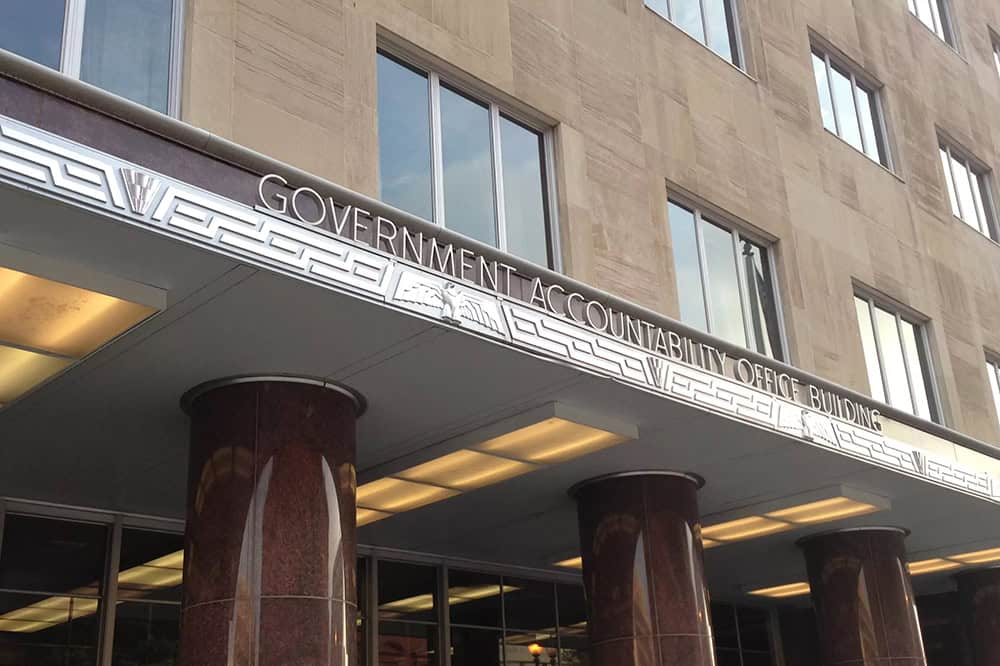Peterson Foundation and Ford Foundation Launch US 2050
New research initiative to explore the demographic, socioeconomic, and fiscal trends that will define America at mid-century
NEW YORK — Today, the Peter G. Peterson Foundation and the Ford Foundation launched US 2050, an initiative that will engage leading scholars to examine and analyze the multiple demographic, socioeconomic, and fiscal trends that will shape the nation at mid-century.
In the coming decades, a transformational wave of foreseeable demographic changes will create a new American tapestry. Social, economic, and technological changes will reshape the domestic and global economy, and the nation’s fiscal condition will face increasing challenges resulting from a range of factors, including an aging society and a structural mismatch between spending and revenues. These interconnected trends will have significant, but not yet fully understood, implications for the social and financial well-being of Americans. US 2050 will explore these issues and their link to the country’s fiscal and economic health.
“America is rapidly changing and we know that our population, workforce, and economy will look very different by 2050. What isn’t clear is how these shifting trends will impact the opportunities and well-being of Americans,” said Michael A. Peterson, President and CEO of the Peter G. Peterson Foundation. “It is time to start thinking seriously today about the critical questions and challenges that will shape our future – and ensure that we deliver a solid fiscal and economic foundation to future generations.”
“It is imperative in order to continue the upward mobility and the fulfillment of the American dream to truly understand the long-term impacts of current fiscal decisions,” said Darren Walker, President of the Ford Foundation. “The rampant inequality in the United States has been in part a result of short-term decisions that will only deepen without a course correct. US 2050 will hopefully provide the evidence necessary to map out and deliver a more equitable future.”
US 2050 is calling for research papers from economists, political scientists, sociologists, demographers, and other scholars. The research question is: How do the changing demographics of America – including aging, race, ethnicity, and other factors – affect the future fiscal and economic health of the nation, and what are the best policies to prepare for and respond to the challenges and opportunities that this future presents?
A distinguished Advisory Committee of academics and policy experts will guide the project, bringing valuable expertise across the key research disciplines. The Committee will be coordinated by the Hutchins Center on Fiscal and Monetary Policy at the Brookings Institution, and includes:
- Charles Blahous, Mercatus Center
- Heather Boushey, Washington Center on Equitable Growth
- Susan Collins, Ford School of Public Policy
- Robert Doar, American Enterprise Institute
- Maria Fitzpatrick, Cornell University
- Bradley Hardy, American University
- Doug Holtz-Eakin, American Action Forum
- Mark Hugo Lopez, Pew Research Center
- Ronald Mincy, Columbia University
- Alicia Munnell, Boston College
- Louise Sheiner, Hutchins Center on Fiscal and Monetary Policy
- Margaret Simms, Urban Institute
- Karl Smith, Niskanen Center
- Michael Strain, American Enterprise Institute
- David Wessel, Hutchins Center on Fiscal and Monetary Policy
More information on US 2050 and the call for papers can be found at www.pgpf.org/us-2050; deadline for submissions is January 22, 2018. Research will be developed throughout 2018 and final papers will be presented at a conference in early 2019.
About the Peter G. Peterson Foundation
The Peter G. Peterson Foundation is a nonprofit, nonpartisan organization that is dedicated to increasing public awareness of the nature and urgency of key fiscal challenges threatening America’s future, and to accelerating action on them. To address these challenges successfully, we work to bring Americans together to find and implement sensible, long-term solutions that transcend age, party lines and ideological divides in order to achieve real results. To learn more, please visit www.pgpf.org.
About the Ford Foundation
The Ford Foundation is an independent, nonprofit grant-making organization. For more than 80 years it has worked with courageous people on the frontlines of social change worldwide, guided by its mission to strengthen democratic values, reduce poverty and injustice, promote international cooperation, and advance human achievement. With headquarters in New York, the foundation has offices in Latin America, Africa, the Middle East, and Asia. For more information, please visit: www.fordfoundation.org.
Further Reading
How Much Can the Administration Really Save by Cutting Down on Improper Payments?
Cutting down on improper payments could increase program efficiency, bolster Americans’ confidence in their government, and safeguard taxpayer dollars.
What Is R Versus G and Why Does It Matter for the National Debt?
The combination of higher debt levels and elevated interest rates have increased the cost of federal borrowing, prompting economists to consider the sustainability of our fiscal trajectory.
High Interest Rates Left Their Mark on the Budget
When rates increase, borrowing costs rise; unfortunately, for the fiscal bottom line, that dynamic has been playing out over the past few years.


